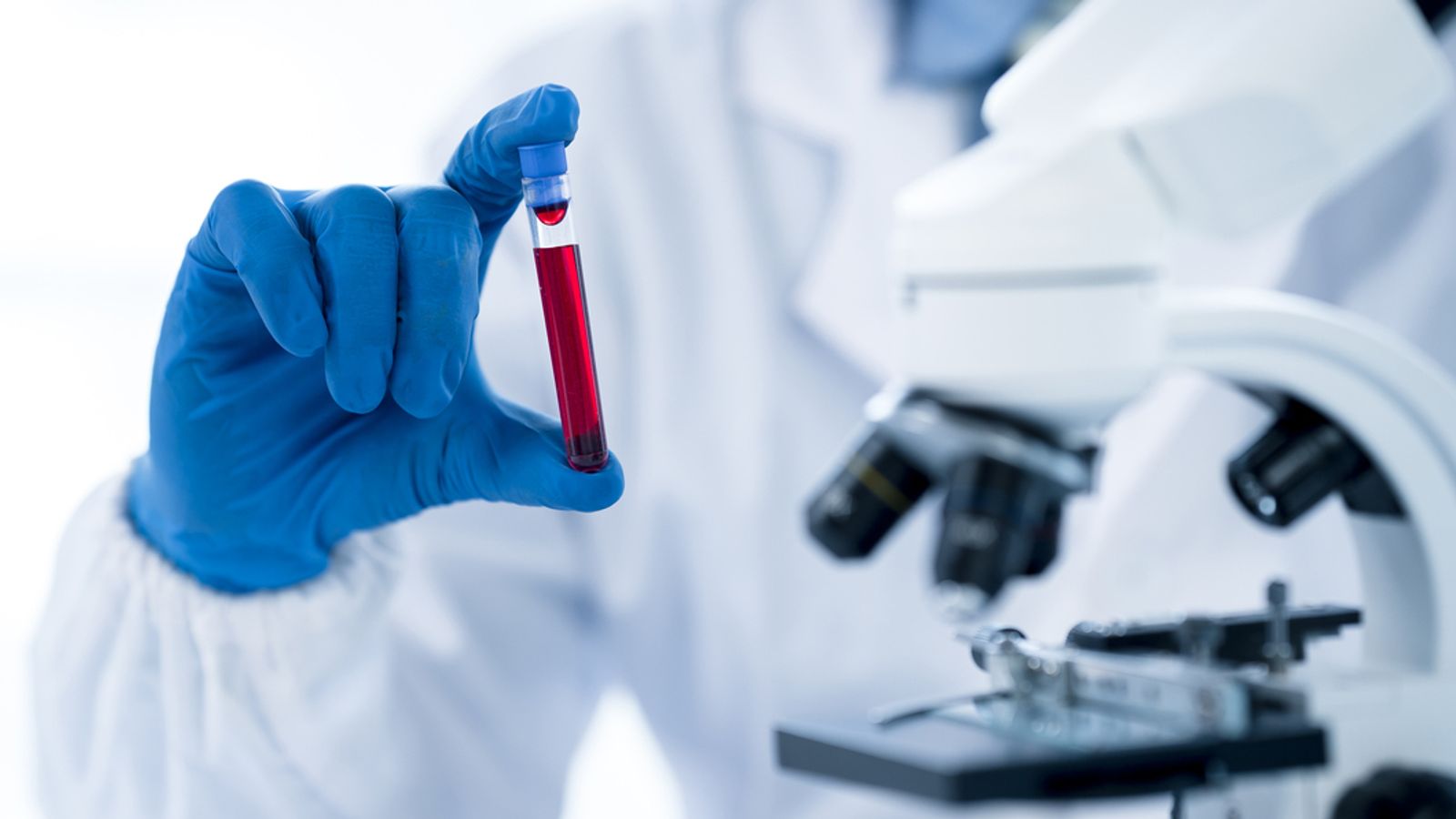A blood test that can detect more than 50 types of cancer could speed up diagnosis and “help save thousands of lives” if it is developed successfully, scientists have said.
The Galleri test has shown promise in a trial involving thousands of NHS patients, a study led by the University of Oxford has found.
Of the 6,238 people in England or Wales in the trial who had visited their GP with suspected symptoms, the test was able to detect signs of cancer in 323 of them – 244 of these were subsequently diagnosed with cancer.
Overall, the test – which detects fragments of tumour DNA circulating in the bloodstream – correctly revealed cancer 66% of the time, researchers found.
Please use Chrome browser for a more accessible video player
The accuracy of the test was also dependent on the stage of the cancer – ranging from 24% for very early-stage (stage I) tumours, to 95% for advanced disease (stage IV).
The most common cancer diagnoses were bowel (37%), lung (22%), uterine (8%), oesophago-gastric (6%) and ovarian (4%).
The findings from the Symplify trial were presented at the American Society of Clinical Oncology conference, in Chicago, and published in The Lancet Oncology journal.
A new way to identify cancer – and save lives
Catching cancer early is vital for people to receive prompt treatment and potentially save thousands of lives in the UK every year.
The test is also being trialled in the NHS to see if it can detect hidden cancers in people without symptoms, with results expected later this year.
NHS national director for cancer, Professor Peter Johnson, said: “This study is the first step in testing a new way to identify cancer as quickly as possible, being pioneered by the NHS.
“Earlier detection of cancer is vital and this test could help us to catch more cancers at an earlier stage and help save thousands of lives.
“It also shows once again that the NHS is at the forefront of cutting edge, innovative technology.”
Professor Helen McShane, director of the NIHR Oxford Biomedical Research Centre, added: “We are committed to diagnosing cancers earlier, when they can be cured, and this study is an important step on that journey.”
Brian Nicholson, associate professor at the Nuffield Department of Primary Care Health Sciences, University of Oxford, said the findings suggest that multi-cancer early detection tests (MCEDs) can play a role “to confirm that symptomatic patients should be evaluated for cancer before pursuing other diagnoses”.
He said: “Most patients diagnosed with cancer first see a primary care physician for the investigation of symptoms suggestive of cancer, like weight loss, anaemia, or abdominal pain, which can be complex as there are multiple potential causes.
“New tools that can both expedite cancer diagnosis and potentially avoid invasive and costly investigations are needed to more accurately triage patients who present with non-specific cancer symptoms.”
Please use Chrome browser for a more accessible video player
Test still needs work and won’t be right for every case
The test does not detect all cancers and it’s not thought it could replace NHS screening programmes, such as those for breast, cervical and bowel cancer.
Developed by Californian company Grail, the test is currently available in the US and has been recommended for people at higher risk of cancer, including the over-50s.
It is also able to pinpoint where in the body the disease is coming from with 85% accuracy.
Read more:
Calls for sunscreen to be VAT-free due to poverty and cancer link
Medicinal cannabis ‘safe’ for cancer patients
The ‘lung MOT’ scan trucks helping to diagnose lung cancer earlier
Ancient viruses in human DNA ‘help fight cancer’
Be the first to get Breaking News
Install the Sky News app for free
Although experts welcomed the study’s findings as “very encouraging”, they said more research was needed.
“To really trust that a negative result on blood testing means no cancer will require more studies,” said Lawrence Young, professor of molecular oncology at the University of Warwick.
Dr Richard Lee, consultant physician in respiratory medicine at the Royal Marsden Hospital and team leader for the early diagnosis and detection team at The Institute of Cancer Research, London, agreed and said: “Further research studies are needed to better understand where these tests sit alongside existing screening offerings and early diagnosis of those with worrying symptoms.
“These remain a research test and are not ready for routine clinical use, but could be a very important tool for cancer diagnosis in the future.”








